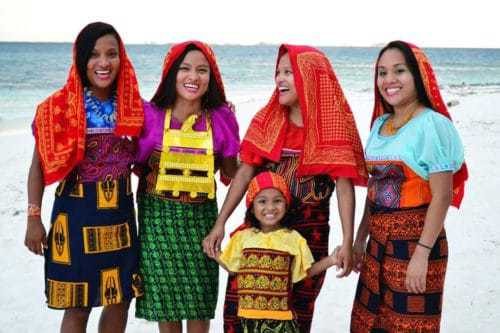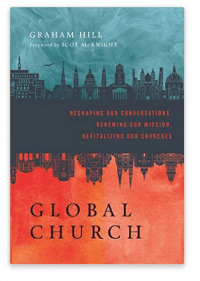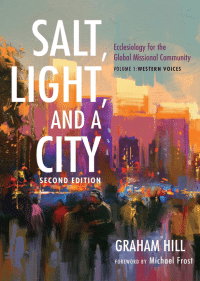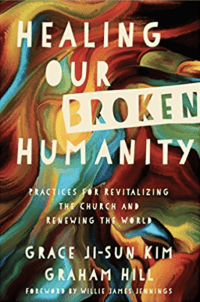Indigenous Voices: The Spiritual Strength of the Peoples of Abya Yala

Indigenous Voices: The Spiritual Strength of the Peoples of Abya Yala
Dulamar gagga: anmar burba gangued Abya Yalagi
By: Jocabed Reina Solano Miselis
Click here for the Spanish version of this post.
In a community in the Gunadule nation, the song of a leader in the congress house is heard:
“The ancestors built their huts; they had good huts, but without order, and without the compact forms of what we have today. Then Ibeorgun taught the elders to build better huts, and to better define all the parts that make up the hut; and to give them each an identity.
“The pole that you put in the centre of the hut is called buwar – a pole that is solid, straight, hard to rot, and too heavy for one person to lift. Uusor is another important pole, and the nagubir poles rest on each of its sides. The other poles that permit the central pole to really be the buwar are called baggu and nagubir. These lesser poles hold up and sustain the buwar, making the whole hut strong and solid. The strong pole is supported by the smaller and weaker ones, so that the stoutest pole gives strength to the weaker ones, and at the same time it gains its vigour and strength and stature from them.”
The poles speak to one another. The strong pole, the powerful buwar, says to its pole friends:
“I cannot do this alone. I cannot hold up the weight of the hut alone. I am strong, but you are the ones who give me your resistance and flexibility to hold up the hut, the whole house, so that the wind cannot blow away the hut, and so the earthquake will not smash it. This is why I need you, dior, even though you are the smallest. I need magged to help me, and my friend saderbir must also give me a hand. We all need the support and strength of each other.
“Only the union of our strength will make those who sleep beneath us happy. I give my hand to dior; it in turn gives a hand to magged; magged offers its spine to saderbir; and in that way we all give each other a hand. We all need sargi, the great vine; for the sargi will unite us so that we don’t each go our own way. We strong poles need the smaller ones.
“When we are all united by the sargi, the great bejuco (a vine), then we feel we are stuck together, and we have the capacity to hold up the weight of the sosga, which covers our bones. We cannot allow one to carry all the weight, even if it is the strongest. We all have to bear the weight of everyone. United we must defend ourselves against the aggressive wind and the earthquakes which will shake us. The house belongs to all of us who lend our shoulder to keep it firm.”(1)
Beginning with this story, I would like to pose some questions that have important implications for our being and doing church and Christian community. What do Indigenous peoples have to offer the church? Are they a “mission field” or are they a place where God is already at work? How do you think the encounter with Indigenous peoples should change the way in which we live out our faith?
I also want to offer some brief reflections that have emerged from my walk in community with others, recognizing the diverse face of God with my Indigenous sisters and brothers in Abya Yala (the continent of America) who live and resist from our own Indigenous spiritualities in a world that wants to impose its hegemony.(2) And we as the church are not exempt from this world. As my Gunadule people would say, they want to kill the Gunadule spirit. In the words of Boaventura de Sousa Santos, this is epistemicide, that is, the destruction of the knowledge of the nations in the hands of European and North American (displaced Europeans) colonialism and imperialism.
These deaths are far from the heart of the gospel and Jesus strongly denounces them. This is because the gospel that is born from the heart of Jesus brings life, not death; and abundant life at that (John 10:10).
Therefore, to know and value the heart and the symbolic universe of Indigenous peoples – where God’s presence is overflowing – is to accept the invitation of the gospel to look at the kingdom of God beyond our own theological borders, and to reimagine new ways of being the church. Here is where I believe it is necessary for us to continue deepening our faith and theology, while engaging out of a theology of encounter and misencounter.
 Meaningful dialogue can emerge from this encounter and this new way of seeing the church, the gospel, and the kingdom. I propose a conversation about our understanding of the church from the plurality of the Christian faith; in other words, exploring and valuing the interculturality of the church and of the ways of being the church.
Meaningful dialogue can emerge from this encounter and this new way of seeing the church, the gospel, and the kingdom. I propose a conversation about our understanding of the church from the plurality of the Christian faith; in other words, exploring and valuing the interculturality of the church and of the ways of being the church.
What are some key features of this emerging intercultural conversation? And what do Indigenous spiritualities and faith teach the worldwide church? Here are three key points:
1. Indigenous voices offer an integral (and holistic) vision of community, with respect to its social and cosmic environment. Consider the song of the Gunadule nation, which we began this post with. All living beings are in interdependent relationship and need each other. The interdependent relationships of all living beings affect our lives positively or negatively. Here the voice of the Earth also echoes. We need to learn from this cosmic coexistence.
2. Indigenous voices offer a new way of understanding social relations in contrast with the modern and capitalist ways of life that permeate Christianity today, which are strongly infused with utilitarianism, individualism, consumerism, patriarchy, and a cannibalistic competitiveness.
[bctt tweet=”Indigenous, Aboriginal, First Nations, and Native American voices offer a new way of understanding relationships, with people and the earth, in contrast with modern capitalist ways of life. ” username=”GrahamJGHill”]
3. Indigenous voices offer another way of understanding the encounter with different cultures, not from a colonial perspective, but rather from a place of conviviality, coexistence, recognition, and valuing our plurality and diversity – just as the gospel calls us to do. “There is neither Jew nor Greek, neither slave nor free, nor is there male and female, for you are all one in Christ Jesus.” (Galatians 3:28)
We must realign our life together; and not just with other human beings but with the whole cosmos. Starting with our faith as Christians, this realignment should be a fundamental part of our faith and belief and no longer shaped around a colonizing logic.
 The issue from the beginning then is that we must realign our life together with the other, and not just with other human beings but with the whole cosmos. Starting with our faith as Christians, this realignment should be a fundamental part of our faith and belief and no longer shaped around a colonizing logic. For many peoples, and in this case especially for Indigenous peoples, just hearing the word “mission” has a colonizing logic. But more than that, our lack of recognition of the presence of God among all peoples – and in this case among the Indigenous peoples of Abya Yala – impedes our ability to see the face of the Creator through mysterious ways that we do not know.
The issue from the beginning then is that we must realign our life together with the other, and not just with other human beings but with the whole cosmos. Starting with our faith as Christians, this realignment should be a fundamental part of our faith and belief and no longer shaped around a colonizing logic. For many peoples, and in this case especially for Indigenous peoples, just hearing the word “mission” has a colonizing logic. But more than that, our lack of recognition of the presence of God among all peoples – and in this case among the Indigenous peoples of Abya Yala – impedes our ability to see the face of the Creator through mysterious ways that we do not know.
God was here before Christianity. For this reason, the question is not, “What can the church do for Indigenous peoples?” but rather “What must the church learn from Indigenous peoples?” This question reflects the heart of Jesus Christ.(3)
One day I dreamed that I could dance, celebrating God in a profound harmony with the Earth. From the wind I heard God’s voice, from the fire I could see God’s sparkle, from the water I saw myself reflected, from the dust I smelled myself, and when I woke up everything was colourful.
Click here for the Spanish version of this post.
 Jocabed Reina Solano Miselis is from the Gunadule nation; an indigenous people which are one of seven original ethnic groups in Panama. She works as co-director of Indigenous Memory – http://www.memoriaindigena.org. Jocabed is currently studying a master’s degree in the Community of Interdisciplinary Theological Studies, and she is part of the team called “Identity, Indigeneity, and Interculturality” within the Latin American Theological Fraternity. Her mother is Reina Miselis and her father is Guillermo Solano. She has three sisters (Yamileth, Yaneth, and Miriam), two brothers-in-law, Jonathan and John, and two nieces, Zoe and Giah. One of her dreams is to continue serving among the church of Abya Yala, recognizing that we need to dialogue and listen to these diverse and important voices. Learn more about Jocabed and support her work: http://uwm.org/missionaries/31569/
Jocabed Reina Solano Miselis is from the Gunadule nation; an indigenous people which are one of seven original ethnic groups in Panama. She works as co-director of Indigenous Memory – http://www.memoriaindigena.org. Jocabed is currently studying a master’s degree in the Community of Interdisciplinary Theological Studies, and she is part of the team called “Identity, Indigeneity, and Interculturality” within the Latin American Theological Fraternity. Her mother is Reina Miselis and her father is Guillermo Solano. She has three sisters (Yamileth, Yaneth, and Miriam), two brothers-in-law, Jonathan and John, and two nieces, Zoe and Giah. One of her dreams is to continue serving among the church of Abya Yala, recognizing that we need to dialogue and listen to these diverse and important voices. Learn more about Jocabed and support her work: http://uwm.org/missionaries/31569/
See Also
Terry LeBlanc on how Native North American and Indigenous peoples worldwide challenge and enrich the global church. CLICK HERE.
Brooke Prentis on what Aboriginal and Torres Strait Islander voices say to Australian church and society, and on her passion and hope for the Australian church. Aboriginal and Torres Strait Islander wisdom is needed today, if the church is to reclaim integrity, community, and witness. CLICK HERE.
Ray Minniecon on what it means to be authentically indigenous and authentically Christian. He challenges the Australian and global church to listen to what Jesus is saying to us through Indigenous faith and Christianity. CLICK HERE.
Jocabed Reina Solano Miselis on how Indigenous, Aboriginal, Frist Nations, and Native American voices offer a new way of understanding relationships, with people and the earth, in contrast with modern capitalist ways of life. CLICK HERE.
Randy Woodley on embracing ethnic diversity, and learning from Native American, First Nations, Aboriginal and Torres Strait Islander, and Indigenous Christians. CLICK HERE.
(2) Abya Yala is a term adopted by Indigenous peoples from around Latin America to refer to the entire American continent. It means “Fully ripe land” or “land of life blood”.
(2) This presentation was given at the 7th Triennial Micah Global Consultation, 10-14 September 2018, CCT Training Centre, Tagaytay, the Philippines.
Want to be mentored?
Books
Don’t forget to buy Graham Hill’s books:
- Global Church
- Salt, Light, and a City (second edition)
- Healing Our Broken Humanity



Comments: We’d love to hear your comments and reflections on this blog post!






